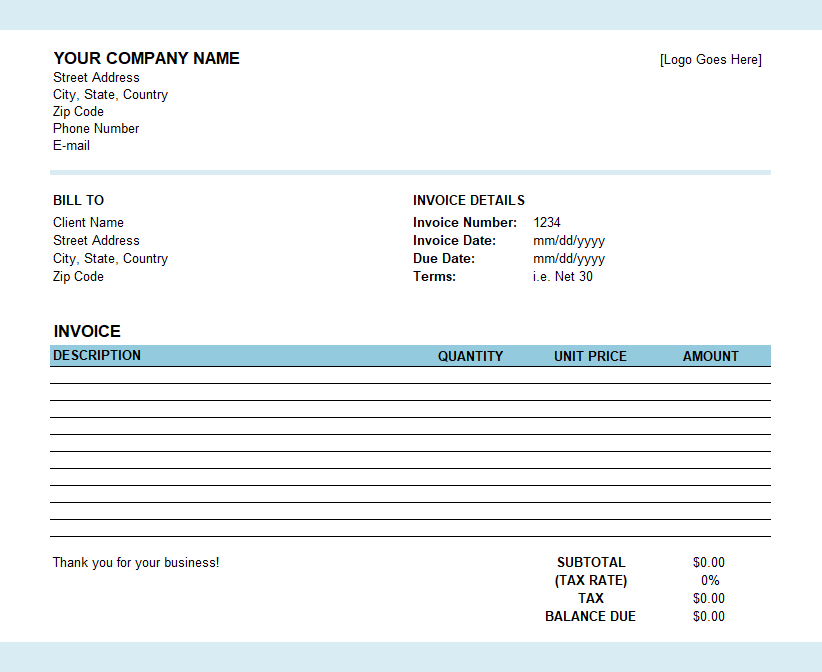Home health care has become an essential part of modern healthcare systems, offering personalized solutions for those who need it most. Whether you're recovering from surgery, managing a chronic illness, or simply looking for ways to stay independent as you age, home health care provides the flexibility and support you deserve. It’s not just about convenience; it’s about creating a healthier, happier life in the comfort of your own home.
Imagine being able to receive top-notch medical attention without leaving your living room. Sounds too good to be true, right? Well, believe it or not, that’s exactly what home health care services aim to deliver. This growing industry focuses on bringing professional care directly to patients, ensuring they get the attention they need while maintaining their dignity and autonomy.
But why is home health care becoming such a big deal? The answer lies in its ability to address some of the most pressing challenges in healthcare today. From rising hospital costs to an aging population, this solution offers a cost-effective and compassionate alternative to traditional care settings. So, buckle up because we’re about to dive deep into everything you need to know about home health care—and why it might just be the answer you’ve been searching for.
Read also:Sheldon's Sister
What Exactly is Home Health Care?
Let’s break it down. Home health care refers to any medical or non-medical service provided in the comfort of your home. These services can range from skilled nursing and physical therapy to assistance with daily activities like bathing, cooking, and even medication management. It’s all about tailoring care to meet the unique needs of each individual, no matter where they are in their health journey.
One of the coolest things about home health care is that it’s not one-size-fits-all. Depending on your situation, you could have a team of professionals working together to ensure you’re getting the best possible care. Think nurses, therapists, aides, and more—all collaborating to keep you healthy and safe.
Who Benefits from Home Health Care?
While home health care is often associated with seniors, the truth is that people of all ages can benefit from these services. Here are just a few examples:
- Seniors looking to age gracefully in their homes
- Individuals recovering from surgery or injury
- People managing chronic conditions like diabetes or heart disease
- Caregivers who need a helping hand
See what we mean? Home health care isn’t just for one specific group—it’s a versatile solution that adapts to whoever needs it.
The Growing Demand for Home Health Care
Did you know that the global home health care market is projected to reach a staggering $383 billion by 2027? That’s right—this industry is booming, and there’s a reason for it. As our population continues to age, more and more people are seeking ways to maintain their independence while still receiving the care they need. Enter home health care, the perfect solution for those who want to stay in familiar surroundings.
But it’s not just about demographics. Rising healthcare costs and advancements in technology are also driving demand. With telemedicine and wearable devices making it easier than ever to monitor health remotely, home health care is becoming more accessible and effective. Plus, who wouldn’t want to avoid the hustle and bustle of hospitals and clinics if they could get the same level of care at home?
Read also:Shakira Mebarak
Why Choose Home Health Care Over Traditional Settings?
There are plenty of reasons why home health care might be the better option for you or your loved ones. For starters, it’s often more affordable than hospital stays or long-term care facilities. Plus, studies show that patients recover faster and experience fewer complications when they’re treated in familiar environments.
Here’s another fun fact: home health care can actually reduce the risk of infections. Hospitals, despite their best efforts, are breeding grounds for germs. By staying at home, you’re less likely to come into contact with harmful bacteria or viruses. Sounds pretty appealing, doesn’t it?
Types of Home Health Care Services
Now that we’ve established what home health care is and why it’s so important, let’s talk about the different types of services available. From skilled nursing to companion care, there’s something for everyone. Here’s a quick rundown:
- Skilled Nursing: Think wound care, IV therapy, and other advanced medical procedures.
- Physical Therapy: Help with mobility and strength after an injury or illness.
- Occupational Therapy: Assistance with daily activities to improve independence.
- Speech Therapy: Support for communication and swallowing difficulties.
- Companion Care: Non-medical services like grocery shopping and meal prep.
As you can see, the options are endless. Whether you need a little extra help around the house or full-time medical attention, home health care has got you covered.
How Much Does Home Health Care Cost?
We get it—cost is always a concern when it comes to healthcare. The good news is that home health care is often more affordable than traditional hospital stays. In fact, many insurance plans, including Medicare, cover certain home health care services. However, it’s important to do your research and understand what’s included in your coverage.
On average, home health care costs anywhere from $20 to $250 per hour, depending on the level of care needed. Skilled nursing tends to be on the higher end of the spectrum, while companion care is usually more affordable. If you’re on a tight budget, don’t worry—there are plenty of resources available to help you find affordable care options.
Choosing the Right Home Health Care Provider
With so many home health care providers out there, how do you know which one is right for you? Start by doing your homework. Look for agencies that are accredited by organizations like The Joint Commission or the Better Business Bureau. You’ll also want to check reviews and ask for references from current or former clients.
Once you’ve narrowed down your options, schedule consultations with each provider. Ask about their experience, qualifications, and specific services they offer. Don’t forget to clarify costs and payment options, too. After all, you want to make sure you’re getting the best possible care without breaking the bank.
Questions to Ask Potential Providers
When interviewing home health care providers, here are a few questions you’ll want to ask:
- Are your caregivers licensed and insured?
- What services do you offer, and how are they tailored to individual needs?
- How do you handle emergencies?
- What is your pricing structure, and do you accept insurance?
By asking the right questions, you’ll be able to find a provider that aligns with your values and priorities.
Technology and Home Health Care
Technology is transforming the home health care industry in incredible ways. From remote monitoring devices to virtual consultations, these innovations are making it easier than ever to provide high-quality care. For example, wearable tech can track vital signs and alert caregivers if something seems off. Telemedicine allows doctors to consult with patients from afar, reducing the need for in-person visits.
But it’s not just about gadgets and gizmos. Technology is also improving communication between caregivers, patients, and family members. Apps and platforms designed specifically for home health care make it easy to stay connected and informed, ensuring everyone is on the same page.
The Future of Home Health Care
So, what does the future hold for home health care? Experts predict even more integration of technology, with artificial intelligence and machine learning playing key roles. Imagine AI-powered systems that can predict health issues before they become serious or robots assisting with daily tasks. It’s not science fiction—it’s the reality we’re heading toward.
Of course, there will always be a need for human connection in healthcare. That’s why the best home health care providers will continue to prioritize empathy and compassion alongside cutting-edge technology. After all, care isn’t just about fixing problems—it’s about building relationships.
Addressing Common Misconceptions
There are a few myths surrounding home health care that we’d like to clear up. First, not all home health care is expensive. As we mentioned earlier, many insurance plans cover certain services, and there are plenty of affordable options available. Second, home health care isn’t just for seniors. Anyone who needs extra support can benefit from these services.
Finally, home health care doesn’t mean giving up your independence. In fact, it’s quite the opposite. By bringing care to you, home health care empowers you to maintain your autonomy and live life on your terms.
Debunking the "It's Too Expensive" Myth
Let’s talk numbers. While it’s true that some home health care services can be pricey, there are ways to make it work within your budget. Start by exploring your insurance options. Medicare, for instance, covers a wide range of home health care services for eligible beneficiaries. Additionally, many states offer programs to assist low-income individuals with healthcare costs.
Don’t forget to shop around. Prices can vary significantly between providers, so getting multiple quotes is always a good idea. And if you’re still struggling to make ends meet, consider reaching out to local charities or non-profits that specialize in senior care. Chances are, they can point you in the right direction.
Success Stories: Real People, Real Results
Nothing speaks louder than real-life success stories. Take Mary, a 78-year-old widow who was struggling to manage her diabetes after her husband passed away. Thanks to home health care, she now has a nurse who visits twice a week to check her blood sugar levels and adjust her medications as needed. Mary says she feels more confident and in control of her health than ever before.
Then there’s John, a 45-year-old father of two who suffered a traumatic brain injury in a car accident. With the help of physical and occupational therapists coming to his home, he’s regained much of his mobility and independence. His wife describes the experience as “life-changing” and credits home health care with helping their family heal.
What These Stories Teach Us
These stories highlight the power of home health care to transform lives. Whether you’re dealing with a chronic condition, recovering from an injury, or simply getting older, home health care can provide the support you need to thrive. It’s all about finding the right provider and services to meet your unique needs.
Conclusion: Is Home Health Care Right for You?
In conclusion, home health care offers a flexible, affordable, and effective solution for those in need of medical or non-medical assistance. With advancements in technology and growing demand, this industry is only going to get better. So, if you’re considering home health care for yourself or a loved one, don’t hesitate to explore your options.
Before you go, we’d love to hear from you! Have you ever used home health care services? What was your experience like? Leave a comment below and let’s start a conversation. And if you found this article helpful, don’t forget to share it with friends and family who might benefit from the information. Together, we can make home health care the norm, not the exception.
Table of Contents
What Exactly is Home Health Care?
The Growing Demand for Home Health Care
Types of Home Health Care Services
How Much Does Home Health Care Cost?
Choosing the Right Home Health Care Provider
Technology and Home Health Care
Addressing Common Misconceptions


